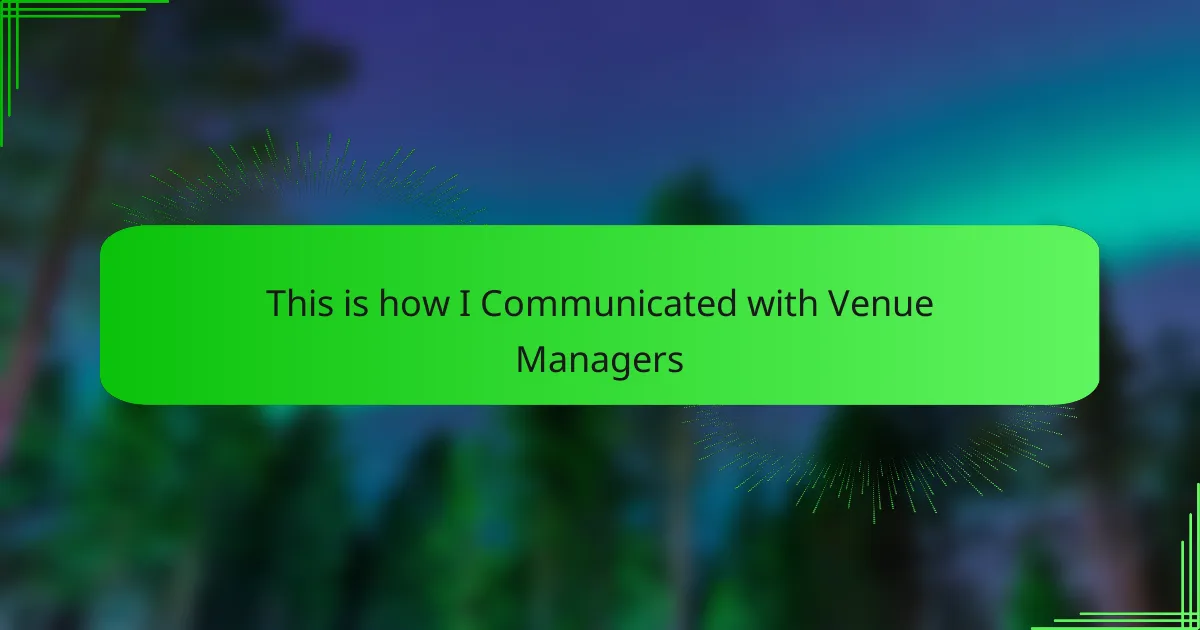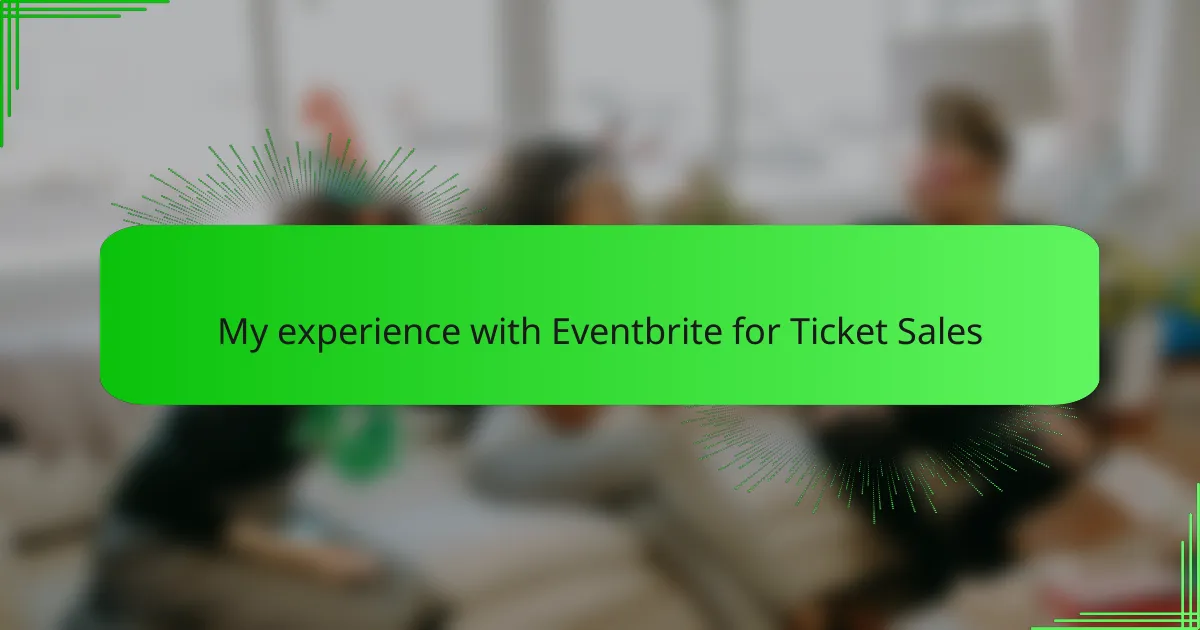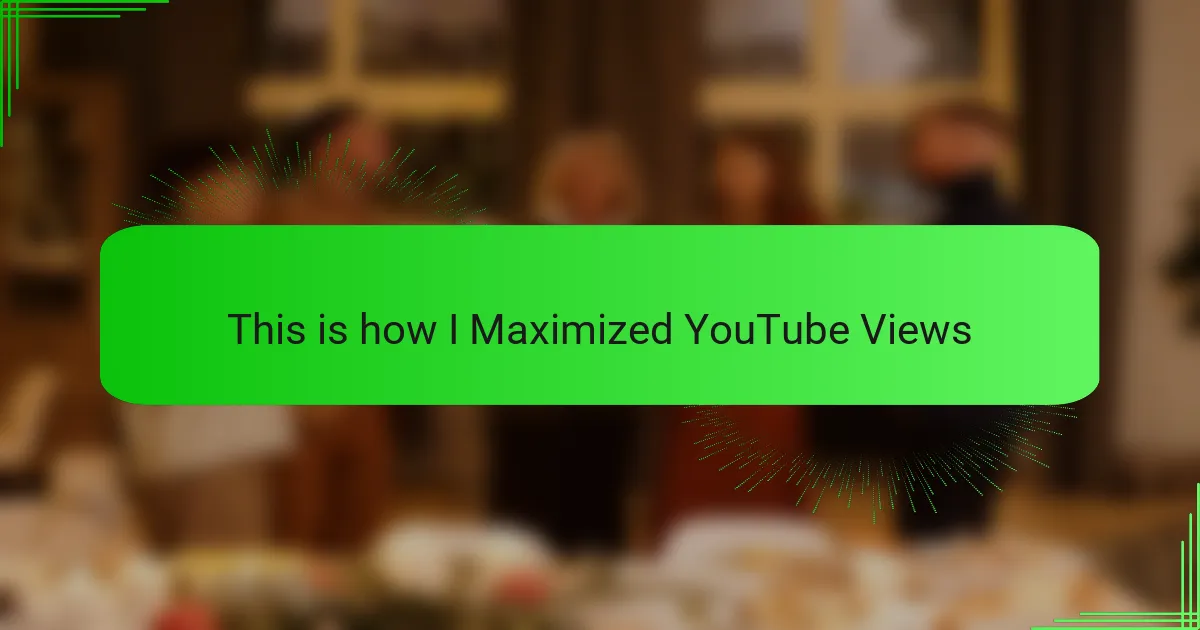Key takeaways
- Effective communication and building relationships with venue managers are essential for successful event collaboration.
- Flexibility and active listening can strengthen professional relationships and enhance event outcomes.
- Personalized interactions and clear objectives help foster a supportive environment between performers and venue staff.
- Regular check-ins and gratitude post-events contribute to lasting partnerships and smoother tours.
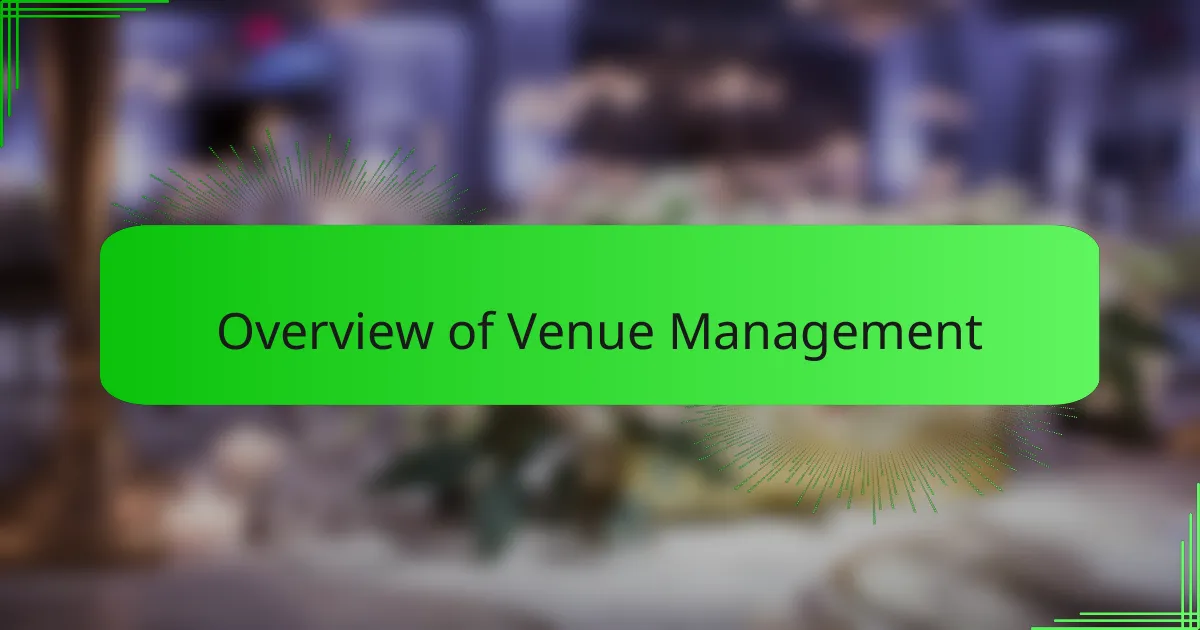
Overview of Venue Management
Venue management is a delicate balancing act. It’s not just about the logistics of hosting an event; it’s about creating an atmosphere that resonates emotionally with both performers and their audience. I still remember my first interaction with a venue manager who truly understood the artist’s needs. It felt like a partnership rather than just a business transaction.
Communication is key in venue management, serving as the foundation for a successful collaboration. When I reached out to managers, I often wondered how to convey my vision while also being open to their insights. Were we on the same page? I found that asking open-ended questions helped foster a dialogue that turned initial concerns into shared solutions.
Understanding the venue’s strengths and limitations is essential for any promoter. Each space has a personality—some are intimate, fostering deep connections, while others excel in sheer capacity. I learned to appreciate these unique qualities, allowing me to tailor my approach and ultimately enhance the comedy experience for everyone involved.
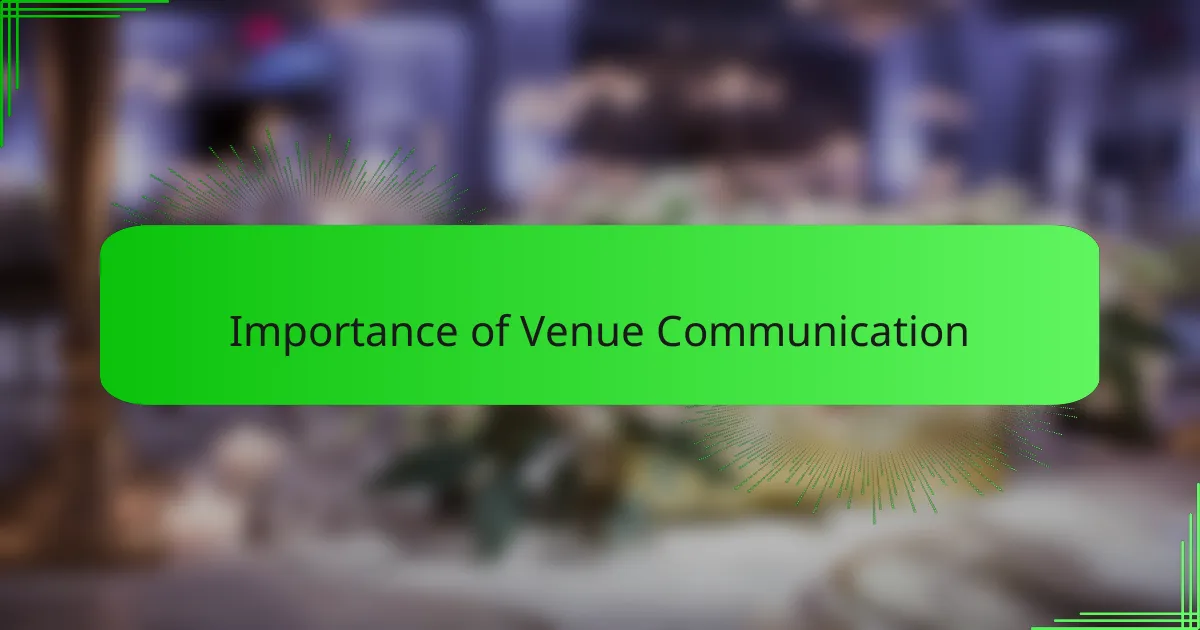
Importance of Venue Communication
Effective communication with venue managers is crucial for a successful comedian tour. From my experience, establishing a strong rapport not only helps in logistics but also creates a supportive environment for both the performers and the venue staff. I remember a time when I discussed stage requirements and lighting preferences directly with the venue manager; this not only eased my mind but also ensured the show went on without a hitch.
Building a transparent line of communication can help address potential issues before they escalate. I learned the value of this when a last-minute change in our setlist required a tweak in sound setup. By promptly reaching out, I was able to clarify our needs, which ultimately led to a smoother performance and happier audience.
Conversely, when I’ve encountered venues where communication was lacking, it often resulted in confusion and stress. This experience taught me that good communication is not just about exchanging information; it’s about building partnerships.
| Aspect | Effective Communication | Poor Communication |
|---|---|---|
| Clarity | Clear expectations lead to a smoother event. | Misunderstandings often create last-minute chaos. |
| Relationship | Strong rapport enhances collaboration and support. | Weak ties lead to a lack of trust and urgency. |
| Problem-Solving | Open lines can address issues quickly and effectively. | Delayed responses can exacerbate challenges. |
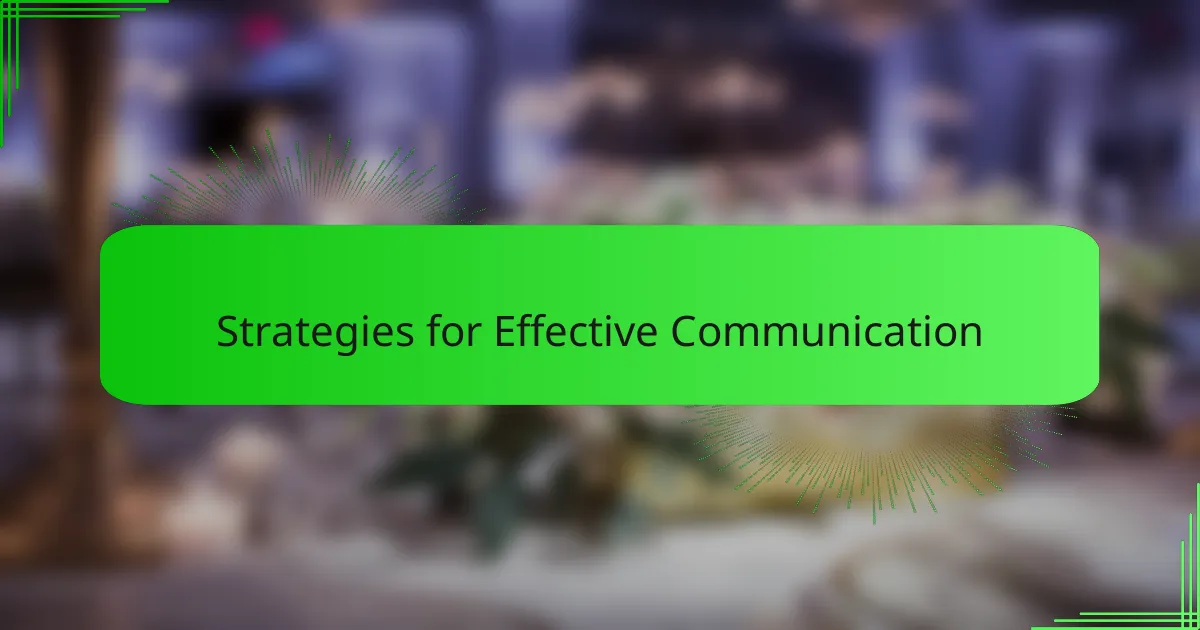
Strategies for Effective Communication
When it comes to communicating with venue managers, I’ve learned that clarity is key. I always make sure to have my goals outlined before reaching out. I remember once sending a straightforward email to a venue manager with clear subject lines and bullet points that highlighted my needs. The response was timely, and we ended up collaborating seamlessly for a fantastic show.
Building rapport is equally important. I take the time to personalize my messages, like mentioning a recent event they hosted that I enjoyed. This not only shows genuine interest but also builds a connection that makes the conversation flow more naturally. Here’s a list of strategies that I’ve found effective for establishing strong communication:
- Clearly outline your objectives in your initial contact.
- Use professional yet friendly language to set a positive tone.
- Personalize messages by referencing specific past events or achievements of the venue.
- Be prompt in follow-ups to demonstrate commitment and professionalism.
- Listen actively and be open to feedback from the venue manager.
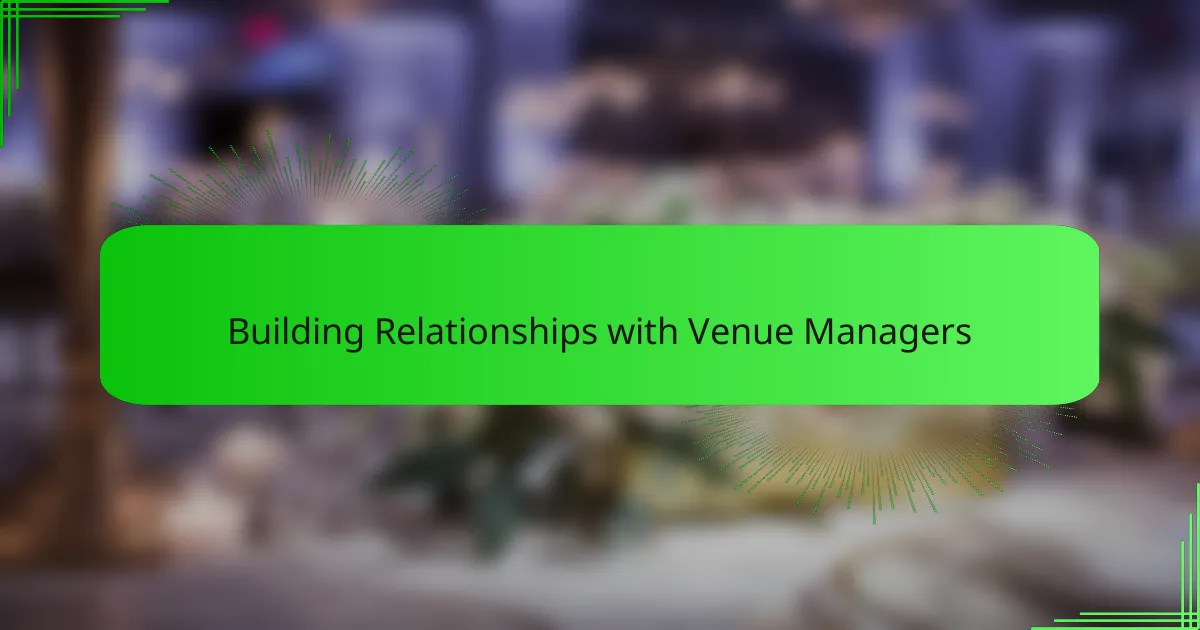
Building Relationships with Venue Managers
Building relationships with venue managers is crucial for a successful comedian tour promotion. I always approach these interactions with a sense of respect and understanding of the challenges they face. For instance, I remember how a venue manager once expressed her frustration about last-minute changes from other performers. By listening actively and validating her concerns, we forged a connection that led to mutual trust.
Ultimately, communication is key in these relationships. Regular check-ins, even when I don’t have an upcoming show, can show them that I value our partnership. Here are some strategies that have worked for me:
- Personalize your interactions by remembering their names and referring to past conversations.
- Be transparent about your needs and expectations without imposing demands.
- Offer to help promote their venue through your social media channels, showing you’re a team player.
- Share your experiences with their venue and highlight what you appreciate about it.
- Follow up post-event with a thank-you note, expressing gratitude for their support.
These simple gestures can build a lasting rapport, making every tour smoother and more enjoyable for everyone involved.
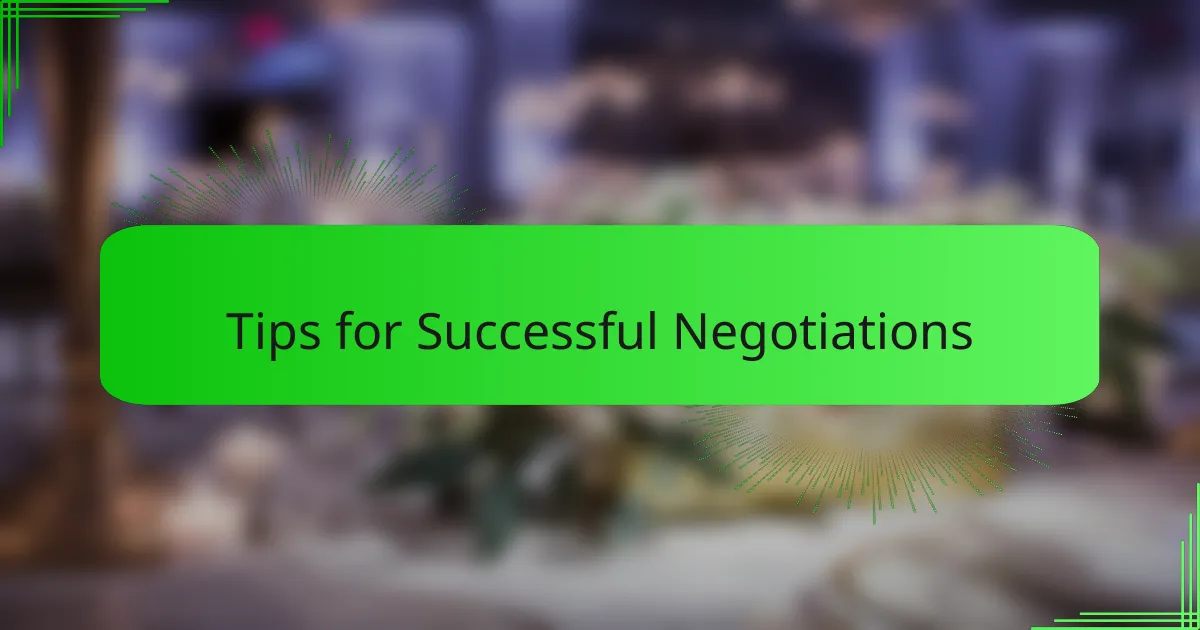
Tips for Successful Negotiations
When engaging in negotiations with venue managers, I’ve learned that building genuine rapport is crucial. I remember one time, during a particularly challenging negotiation, I took a moment to connect personally with the manager over our shared love for classic comedy. It set a friendly tone that made the rest of the discussion feel collaborative rather than confrontational.
Here are some tips that have worked for me in successful negotiations:
- Do Your Homework: Understand the venue’s reputation and past events.
- Be Flexible: Be open to different ideas and compromises that may arise.
- Listen Actively: Pay attention to the venue manager’s concerns and suggestions.
- Communicate Clearly: Define your needs, but also be clear about what you can offer.
- Maintain a Professional Demeanor: Stay courteous, even in tough discussions.
- Follow Up: Always send a thank-you note after negotiations to keep the lines of communication open.
Each of these strategies has helped me create a more positive negotiating experience, ultimately leading to better outcomes for my tours.
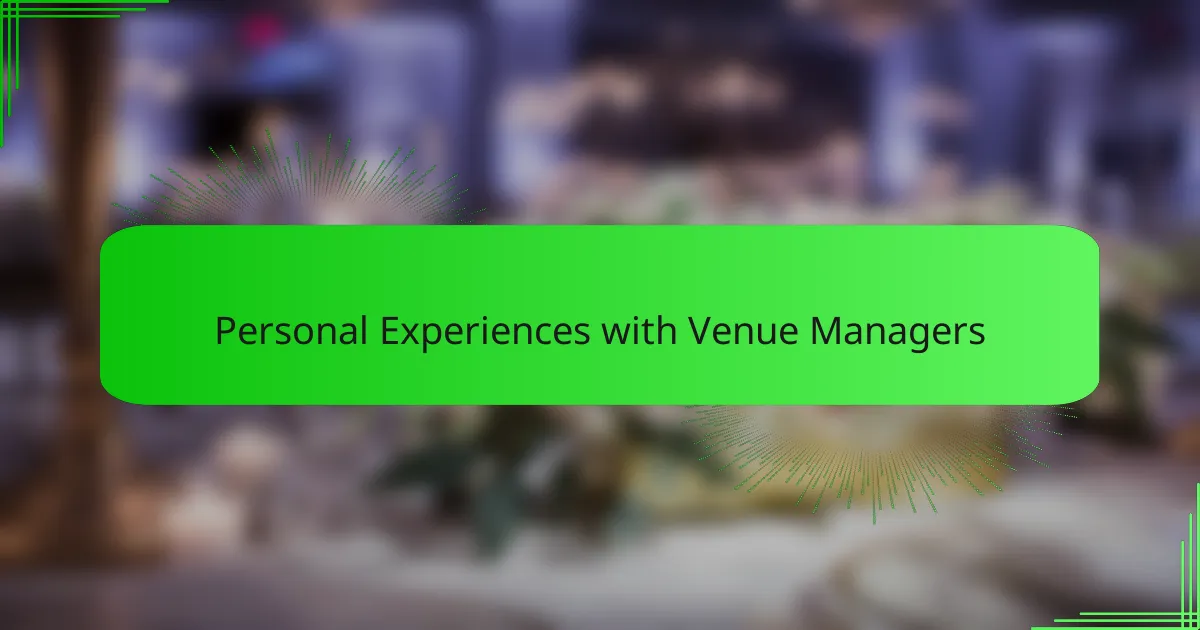
Personal Experiences with Venue Managers
Working with venue managers has been quite the journey for me. I remember one particular show where the venue manager and I clicked right away. Our conversations flowed easily, and we exchanged ideas about setup and audience preferences, which made the entire promotion feel collaborative rather than transactional.
In my experience, a good relationship with a venue manager can significantly impact a show’s success. When I took the time to understand their perspective and needs, it paid off immensely. They often have insights into the local audience that can enhance how I promote a show.
- Always be respectful of their time; they juggle multiple events and tasks.
- Share your vision clearly; clarity builds trust and understanding.
- Listen actively; their feedback can help improve your show and promotional strategies.
- Follow up post-event; it’s a nice touch to thank them and keep the lines of communication open for future opportunities.
- Attend local events they recommend; fostering a personal connection can lead to stronger partnerships.
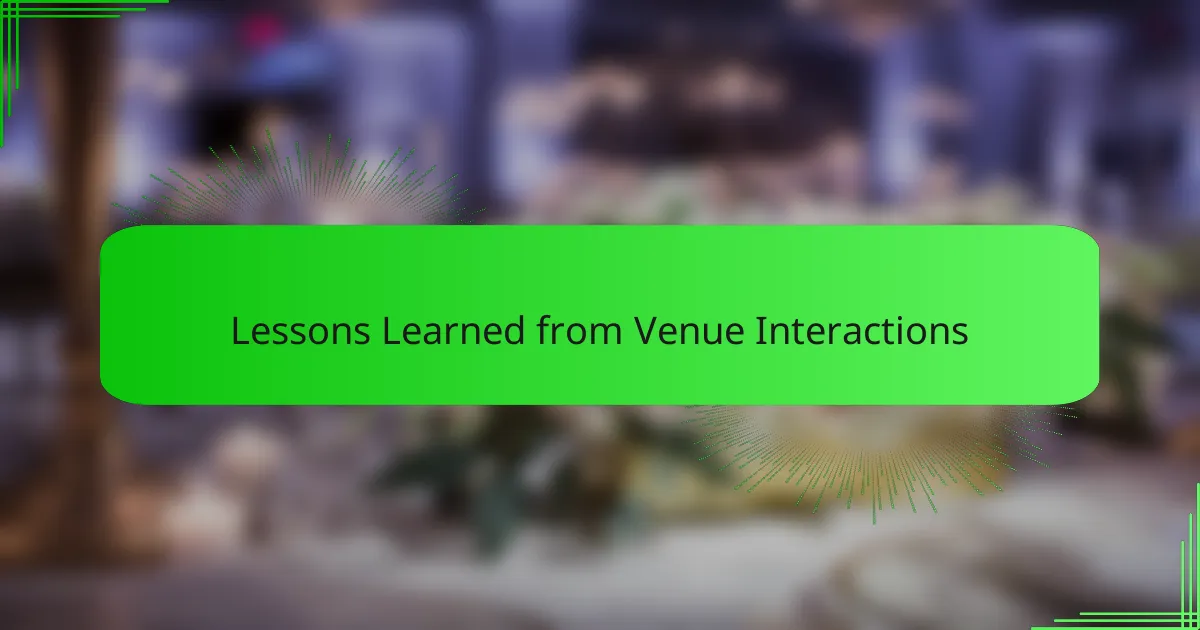
Lessons Learned from Venue Interactions
When communicating with venue managers, I learned that building a relationship is just as important as pitching the event. For example, I recall one venue manager who appreciated a personalized email approach rather than a generic template. This small gesture made a significant impact, opening up a more collaborative dialogue.
Moreover, I understood the importance of flexibility during negotiations. One time, I had to adjust the show date due to a venue conflict. By being adaptable, the manager and I managed to find a solution that worked for both sides, strengthening our professional relationship in the process.
One key lesson is to actively listen. During one meeting, I noticed that the manager had unique insights about the local audience preferences. By incorporating their advice, my tour ended up being more successful than I initially anticipated.
| Lesson | Example |
|---|---|
| Build Relationships | Personalize communications to engage venue managers. |
| Be Flexible | Adapt show dates when conflicts arise to maintain a good rapport. |
| Active Listening | Incorporate venue insights to enhance show appeal. |
